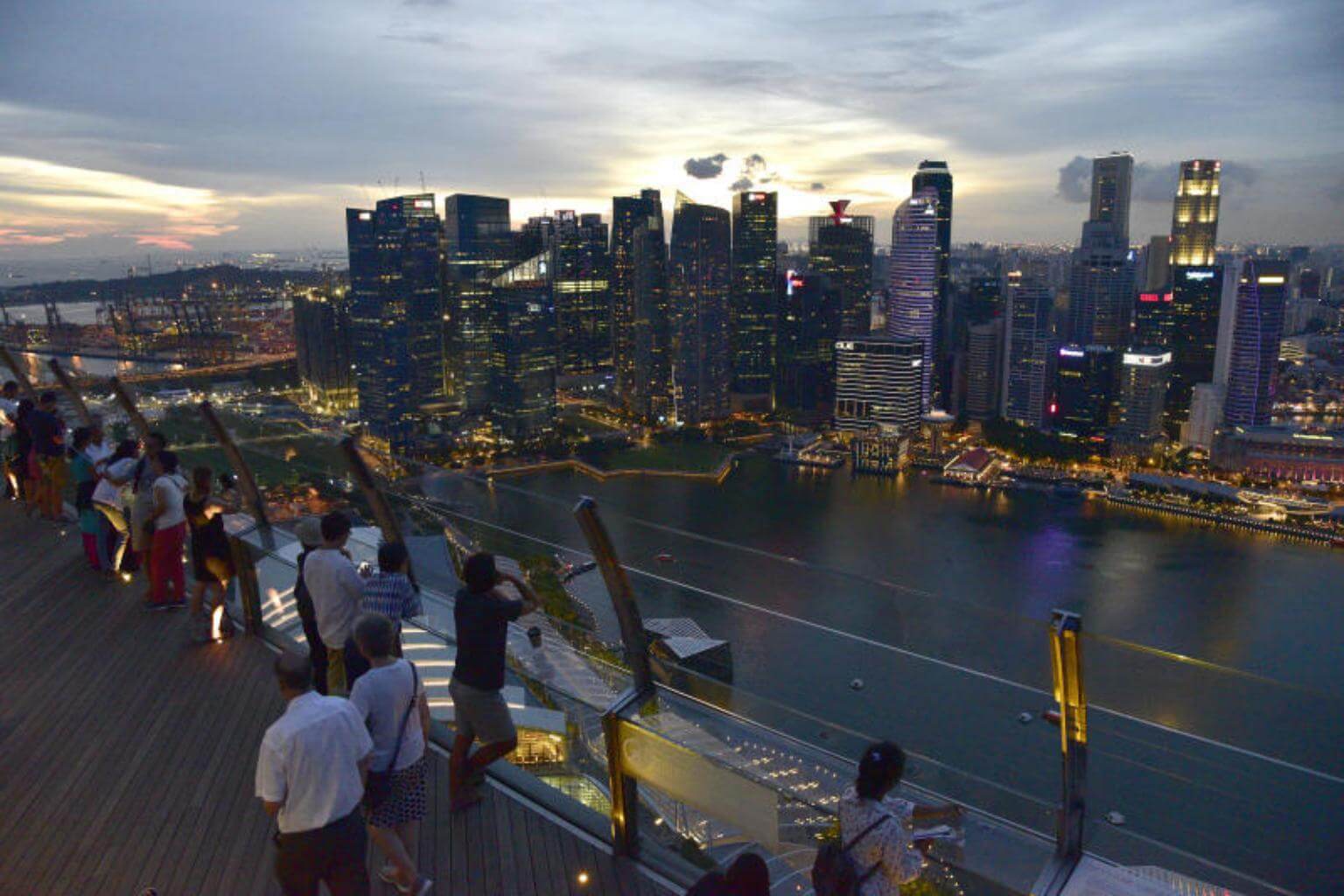Singapore beats Hong Kong in liveability rankings for first time
Sign up now: Get ST's newsletters delivered to your inbox

Singapore's city skyline and the Central Business District as seen from Marina Bay Sands.
PHOTO: ST FILE
Chia Yan Min
Follow topic:
SINGAPORE - Singapore has come out ahead of Hong Kong in a ranking of the world's most liveable cities, thanks mainly to improvements in education.
The country rose 11 spots to 35th while Hong Kong fell two places to come in 45th in the annual league table complied by the Economist Intelligence Unit (EIU).
Melbourne was named the world's most liveable city for the seventh straight year, while Damascus in Syria came in last on the list of 140 cities surveyed.
The EIU ranks cities by assigning each a rating for over 30 qualitative and quantitative factors across five broad categories: stability, healthcare, culture and environment, education and infrastructure.
Mr Stefano Scuratti, who leads the EIU's public policy, economics and politics consulting team in South-East Asia, said Singapore's "fantastic" performance in this year's ranking is in line with a trend that has seen the country improve by 17 places over the past five years.
Improvements in indicators related to education were the principal driver of this, he said.
While Singapore performed strongly across most liveability metrics, it did less well in the culture and environment domain, which measures elements such as the availability of sport and cultural events, he added.
Meanwhile, Hong Kong's slide down the rankings was attributed to "the aftermath of the Umbrella Revolution, which highlighted people's unease with the recent political developments following the proposed reforms to the electoral system", said Mr Scuratti.
Among major cities with declining scores, only Paris - which has been hit by a spate of recent terror attacks in and around the city - recorded a worse slump than Hong Kong's.
Still, Mr Scuratti said both Hong Kong and Singapore "are extremely liveable cities...with scores of 88.8 and 90.4 (out of 100) respectively".
The EIU report noted that cities with the best scores tend to be mid-sized and located in wealthier countries with a relatively low population density.
"These can foster a range of recreational activities without leading to high crime levels or overburdened infrastructure."
The EIU report also noted that global business centres "tend to be victims of their own success".
"The 'big city buzz' that they enjoy can overstretch infrastructure and cause higher crime rates," the report said, noting that while New York, London, Paris and Tokyo are all prestigious hubs with a wealth of recreational activities, all suffer from higher levels of crime, congestion and public transport problems than are deemed comfortable.
"The question is how much wages, the cost of living and personal taste for a location can offset liveability factors."
CIMB Private Bank economist Song Seng Wun noted that Singapore is striving to be a global city and is positioning itself as a hub for new technologies and emerging sectors like e-commerce and fintech, which should contribute to improving its liveability in the long term.
In addition, "those with families inevitably find that Singapore is an attractive place because of the infrastructure and education system".
"Singapore will never be the cheapest place to be based, but on the whole it is an attractive place to live, work and play," he added.

